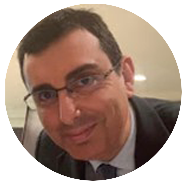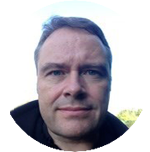Full Program
All the I3M Sessions will be held online through Microsoft TEAMS. Within the Program you will find a link to each I3M Session.
I3M 2021 as a fully online event (blended event cancelled)
The I3M 2021 Organization Committee has hardly worked along the last months to set-up I3M 2021 as blended event (both in presence and online). We have been obliged to wait until August to take a decision about the blended event to have the possibility to observe the pandemic trend as well as to receive hotels availability to host the event. Only few people (less than 20 out of 450 authors and around 150 papers) have selected the “in person” participation mode, while all the others attendees prefer the online participation. In addition, in many countries, a new COVID-19 wave is already started or it is going to start very soon and the aggressiveness of the Delta Variant is challenging many countries.
Due to these considerations, the I3M 2021 Organization Committee has decided to cancel the event in person and to run I3M 2021 as a full online event. We will still keep trying and we hope that for I3M 2022, that will be held in Rome (Italy), we can see again each other in person.
Papers Presentations only through the online mode
Regarding the papers presentations, these will be done in Parallel Sessions only through the online mode and according to the following format: for each paper there will be a pre-recorded video of the paper presentation (maximum 10 minutes, please be sure to respect this limit when preparing your video) + 5 minutes during which the presenting author will answer to questions made by the audience.
The videos of the paper presentations must be uploaded by authors no later than September 10th 2021. Please use the following form to upload your video: https://www.msc-les.org/conf/I3MUpload/index.html
Keynote Talks

Gregory Zacharewicz
Full Professor
IMT Mines Ales (National Institute of Mines and Telecommunications)
France
Modeling & Simulation Driven framework for Interoperability of Enterprise System M&SDIES
Biographical Sketch
Gregory Zacharewicz, is a Full Professor at IMT Mines Ales (National Institute of Mines and Telecommunications) in Alès, France. He recently joined the LSR laboratory to develop research work based on simulation. This laboratory focuses on the relationship between risk and complex systems while keeping part of its roots in the system engineering and ICT field. He was previously an associate professor at the University of Bordeaux (2007-2018) where he focused his research for more than 10 years on modeling, interoperability, and simulation of enterprises and social organizations. More generally, his research interests include discrete event modeling (e.g., DEVS, G-DEVS), distributed simulation, distributed synchronization algorithms, HLA, FEDEP, MDA, short-lived ontologies, ERP, BPMN and workflow. He recently co-authored with an international team of authors a prospective chapter on model-based approaches to interoperability in next-generation enterprise information systems. In the area of healthcare methodologies and technologies, in 2018 he co-authored with Bernard P. Zeigler, Mamadou K. Traore and Raphaël Duboz the book “Value-based Learning Healthcare Systems: Integrative modeling and simulation”. He was the program chair of Springsim 2016 in Pasadena, vice chair of SpringSim 2017 in Virginia Beach, general chair of SpringSim 2018 in Baltimore, and program co-chair of IEEE DS-RT 2021. He is a member of the editorial boards of Simulation Journal, JSimE, Science Progress, SNE, and Modelling.

Alfredo Garro
Associate Professor
University of Calabria
Italy
From Space to Earth: Enabling a-priori interoperability of HLA- based simulations using standards and simulation design patterns
Biographical Sketch

Simon J. E. Taylor
Professor and Vice-Dean (Research) for the College of Engineering, Design and Physical Sciences
Brunel University London
United Kingdom
Distributed Simulation: Experiences and Reflections
Biographical Sketch
Regular & Invited Sessions
Regular sessions cover the topics of the conference and mainly group the papers that fall within a specific research subject and submitted to the regular program.
Invited Sessions consist of papers collected within the scope of an Open Track proposed by one or more organizers. Papers are mainly based on personal invitation by the Open Track organizer(s) but may also include papers submitted to the regular program.
Regular and Invited Sessions will last about 1 hour and 30 minutes and may include between 4 and 5 papers. Contributions can be either regular papers or short papers (min 3 pages length) and they will appear in the conference proceedings.
Reviewing Process
Each paper submitted to the conference will be individually peer-reviewed taking into consideration scientific quality, originality and relevance. At the discretion of the IPC and considering the reviewers’ comments, individual papers may be accepted for inclusion in the conference proceedings. The revised paper will then undergo a second round of reviews to check whether the authors have carefully addressed the reviewers’ comments and the paper is fully acceptable for publication. At the discretion of the program committee, individual papers may be removed from an invited session and placed in the regular program, as well as appropriate contributed papers may be moved to an invited session.
Presentation Formats and Speakers' Instructions
- Each session lasts 1.5 hours, and may includes from 4 to 5 papers. Depending on the number of the papers in the session, you’ll have about 12-15 minutes for your presentation, plus some time at the end for the Q&A. The chair/co-chair of your session is responsible for keeping the time, but we recommend you to adhere with the allotted time.
- We recommend you to be in your session’s room at least 10 minutes before the scheduled starting time, in order to upload your presentation on the laptop. As a general rule, speakers will not be allowed to use their own laptops, tablets or other devices to give their presentations, unless previously communicated to the conference organization team.
- When you enter the session room, introduce yourself to the chair/co-chair, so they can take note of your presence.
- Provide your presentation in either PowerPoint or PDF format. We suggest you to always bring a PDF copy of your presentation in order to minimize any format issue.
Special Sessions
Special sessions offer a 90-minute venue for the presentation of topics of special academic, social or industrial interest, such as emerging research areas or most recent trends. A Special Session can be also devised to include project presentations, panel discussions or non-technical talks on topics such as research funding, entrepreneurship, or technology transfer, and can receive a wide interest across different themes of the conference. As such, special sessions do not include presentation of scientific papers submitted to the conference and the session agenda will be defined by the Special Session Chair. All scheduling of special sessions is completed by the conference organisation committee. Requests may be submitted to the committee for a special accommodation but cannot be guaranteed, as the committee decisions are made with the full scope of the conference in mind.
List of I3M 2021 Special Sessions
Chair: David del Rio Vilas
Affiliation: OHLA-Services Ingesan (Spain)
Track Description: During the last seven years, the Horizon 2020 -the biggest EU Research and Innovation programme- has provided a wide and ambitious collaborative transnational framework for the development of solutions tackling with the main EU’s societal, environmental, economic and technological challenges. Through its different programmes and projects, Modelling&Simulation has successfully demonstrated its usefulness and versatility as a fundamental means to provide organisations with the capacity to design, analyse and adapt their response to an increasing uncertain environment. The new Horizon Europe (HE) framework, the most ambitious R&I program in the world, will extend and consolidate the achievements of the former H2020, but it will also have to deal with new realities deriving from the pandemic and the climate change scenarios. In this context of urgency and effectiveness, more than ever, academia and industry must collaborate and develop more efficient ways to exploit simulation as a central means to reach sustainable benefits for the social, environmental, and economy challenges ahead. “Supporting Academia-Industry cooperation for the acceleration of Simulation Projects” will provide both academia and industry representatives to the MAS 2021 Conference with an occasion to present themselves and have early discussions on the formation of consortia in different topics, anticipating needs and opportunities to promote initiatives focused on promoting the effective and productive simulation dialogue between the two realms.
Chairs and Speakers
Special session chairs or speakers are not required to submit a paper. The special session chair is the individual who submits the proposal to the conference committee, acts as the leader and coordinator for the session development, defines the agenda of the session, is in charge of promoting the session and ensures the successful and timely execution of the session.
Presentation Formats and Speakers' Instructions
- Each session lasts 1.5 hours in total. Please ask the chair/co-chair of your special session for preliminary information about the session agenda and the time at your disposal for the presentation.
- We recommend the speakers to be in the session’s room at least 10 minutes before the scheduled starting time, in order to upload the presentation on the conference laptop. As a general rule, speakers will not be allowed to use their own laptops, tablets or other devices to give their presentations, unless previously communicated to the conference organisation team.
- If you are a speaker, when you enter the session room, introduce yourself to the chair/co-chair, so they can take note of your presence.
- Provide your presentation in either PowerPoint or PDF format. We suggest you to always bring a PDF copy of your presentation in order to minimize any format issue.
Submit a Special Session Proposal
Are you willing to organize a special session at I3M focusing on a specific subject? Fill the form and send it to f.longo@unical.it and massei@itim.unige.it.
Organized by

For further info, please contact
